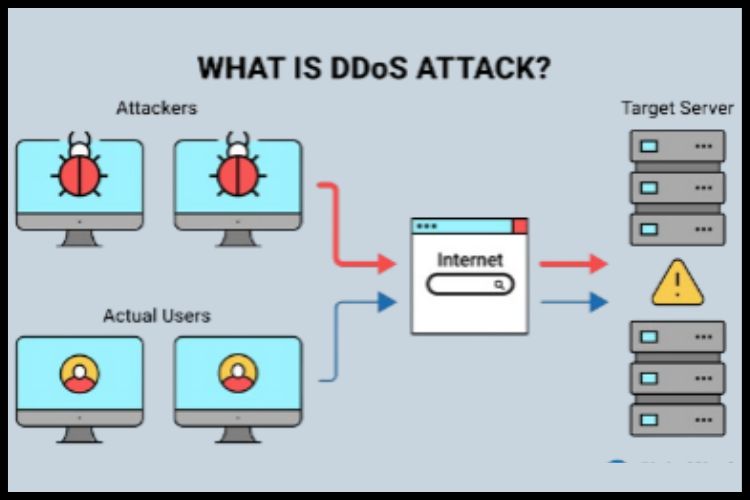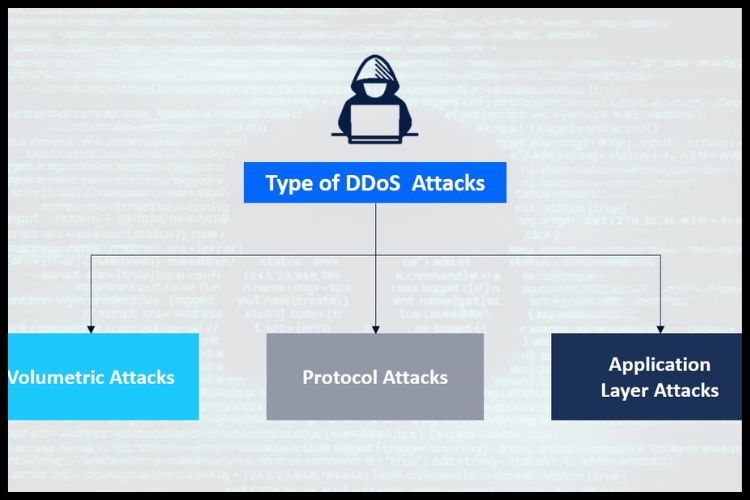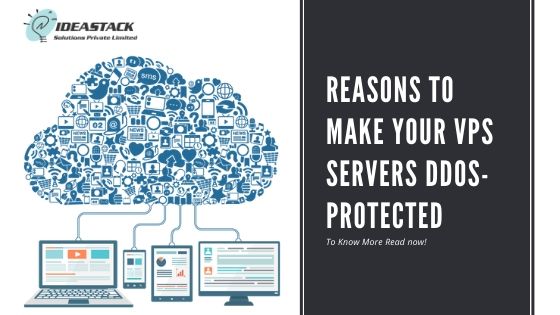Countering Cyber Onslaughts: A Comprehensive Guide to DDoS Protection
Understanding and Preventing DDoS Attacks
In an increasingly connected digital world, the threat of cyber attacks looms large. Among these, Distributed Denial of Service (DDoS) attacks are particularly disruptive. In this blog, we’ll explore what DDoS attacks are, how they work, differentiate them from DoS attacks, discuss their types, and provide strategies for prevention.

What is a DDoS Attack
A DDoS attack is a cyber attack in which multiple compromised computer systems attack a target, such as a server, website, or other network resource, and cause a denial of service for users of the targeted resource.
The flood of incoming messages, connection requests, or malformed packets to the target system forces it to slow down or even crash and shut down, denying service to legitimate users or systems.
How Does a DDoS Attack Work
A DDoS attack typically involves a network of machines called a botnet. These botnets, which consist of computers and other devices infected with malware, are controlled by the attacker. The attacker directs the botnet to send a flood of traffic to a target, overwhelming its resources.
Differentiating Between DoS and DDoS Attacks
While both DoS (Denial of Service) and DDoS attacks aim to make online services unavailable, they differ in their execution. A DoS attack originates from a single source, whereas a DDoS attack comes from multiple, distributed sources, making it more difficult to stop as it’s not just one device or IP address to block.
Types of DDoS Attacks
DDoS attacks can be categorized into several types, including but not limited to
Volumetric Attacks
These are the most common and involve overwhelming a network with sheer volumes of traffic.
Protocol Attacks
These target the network layer or transport layer with malformed packets, connection requests, etc.
Application Layer Attacks
These are more sophisticated and target specific aspects of an application or service.

How to Prevent a DDoS Attack
Preventing DDoS attacks involves several strategies
Increase Network Resiliency
This can be done by increasing bandwidth, diversifying resources, and having redundancy.
Implement Security Measures
Use anti-DDoS hardware and software solutions, firewalls, and intrusion detection systems.
Plan for Attacks
Develop a response plan in case of an attack, including the use of cloud-based DDoS protection services.
Regular Monitoring
Constantly monitor your network for signs of unusual activity.
Conclusion
DDoS attacks pose a significant threat to the digital landscape of today. Understanding their nature, how they work, and how to protect against them is crucial for any online business or service provider.
Frequently Asked Question
Q1.What makes DDoS attacks hard to defend against?
The distributed nature and massive scale of DDoS attacks make them difficult to defend against, as they come from multiple sources.
Q2.Can small businesses be targeted for DDoS attacks?
Yes, DDoS attacks can target businesses of any size. Smaller businesses can be especially vulnerable due to fewer resources for defense.
Q3.Are there any legal measures to combat DDoS attacks?
While there are legal consequences for conducting a DDoS attack, prevention and mitigation are key, as legal measures come into play post-attack.








